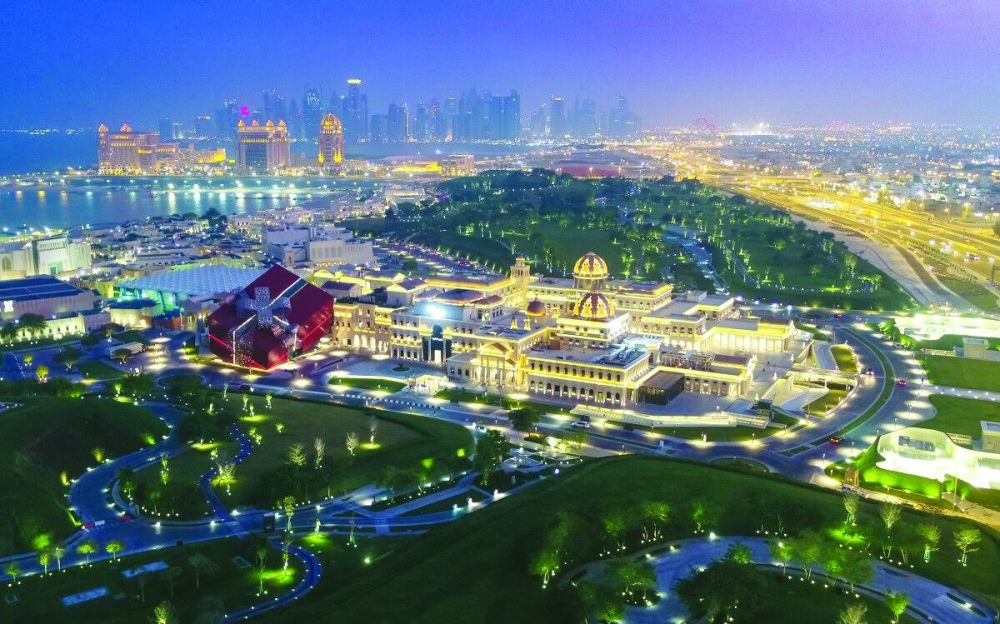In just three days’ time, Asia’s top 24 teams will learn their route to ultimate glory at the AFC Asian Cup Qatar 2023. All eyes will be on Doha for the Final Draw ceremony as the stage is set for the Continent’s flagship international tournament, which kicks off on January 12, 2024.
Ahead of the glitz and glamour, the-AFC.com presents some interesting facts and figures ahead of this Thursday’s draw.
Cultural beats
A world-renowned cultural hub for artistes and musicians, the Katara Opera House provides the perfect setting for the Final Draw with its sophisticated architecture that fuses modern and traditional Islamic design elements, and is home to the renowned Qatar Philharmonic Orchestra, which sows the seeds of symphonic music in the Arab region, while serving as a platform for music from all over the world.
Both music and football are universal languages with the inherent ability to merge cultures and traditions, and the Katara Opera House stands ideal as a venue to showcase the richness of Qatari and Asian culture.
Proceedings at the only facility of its kind in Qatar kick off at 2pm local time and will be livestreamed on the AFC YouTube channel and Facebook page.
Luck of the draw
After an intense and enthralling qualification period spanning three years concluded in June 2022, a final cast of 24 teams is left standing.
The teams will be divided into four Pots of six each in accordance with the latest FIFA Ranking. Thereafter, the teams will be drawn into six groups of four each across Groups A to F.
To ensure that Qatar commences the tournament with the opening match, the hosts have been allocated the first position in Pot 1. The full list is as follows:
Pot 1: Qatar, Japan, Iran, South Korea, Australia, Saudi Arabia
Pot 2: Iraq, United Arab Emirates, Oman, Uzbekistan, China, Jordan
Pot 3: Bahrain, Syria, Palestine, Vietnam, Kyrgyz Republic, Lebanon
Pot 4: India, Tajikistan, Thailand, Malaysia, Hong Kong and Indonesia
Third time’s the charm?
The decision to award the Asian Cup 2023 hosting responsibility last October to the Qatar Football Association (QFA) means that Qatar will be the first country to host the Continental showpiece for a third time.
Having staged the tournament in 1988 and 2011, the defending champions move ahead of the Islamic Republic of Iran, Thailand and the United Arab Emirates, who have each twice served as hosts. It is the seventh time that the Asian Cup will be played in the West Zone.
With Qatar having hosted the FIFA World Cup 2022, it also means that this will be the first ever AFC Asian Cup to have matches played at World Cup venues. As many as 13 teams at the Asian Cup 2023 were also present at the 2011 edition. Sure to be backed by a partisan crowd, Carlos Queiroz’s men are bidding to become only the fifth team to win back-to-back Asian crowns after Iran, Japan, South Korea and Saudi Arabia.
A debutant, a returning trio and old-timers
Tajikistan will become the 36th debutant in Asian Cup history when they take to the field in Qatar, thanks to Shervoni Mabatshoev’s winning goal against Singapore on June 11 , 2022 during the third round of Qualifiers that sealed a historic qualification to Asia’s crown jewel.
The Dastai Muntakhabi, who had previously fallen short at the same qualifying stage for the 2019 edition, are the only new face at the Asian Cup Qatar 2023 and their qualification means that since the competition’s inception in 1956, only two editions have not been graced by at least one debutant.
Only three of the remaining 23 teams were not involved in the 2019 showpiece in the UAE – Indonesia, Hong Kong, China and Malaysia. While the Garuda and Harimau Malaya both last took part in 2007, Hong Kong, China’s participation is their first since the fourth edition that took place in 1968.
At the opposite end of the spectrum, Iran and South Korea will each be contesting their 15th Asian Cup, two more than China, who are second on the list. Iran have played the most games in Finals history with 68 and are also the only team to have lifted the trophy three times in a row (1968, 1972, 1976).
Elsewhere, Japan, the tournament’s most successful side with four triumphs, and 2007 champions Iraq are the eighth and ninth teams to reach 10 Asian Cup participations.
Sport
Asian Cup Qatar 2023 Final Draw: All you need to know
In just three days’ time, Asia’s top 24 teams will learn their route to ultimate glory at the AFC Asian Cup Qatar 2023. All eyes will be on Doha for the Final Draw ceremony as the stage is set for the Continent’s flagship international tournament, which kicks off on January 12, 2024.

Katara Opera House will provides the perfect setting for the AFC Asian Cup Qatar 2023 Final Draw.
